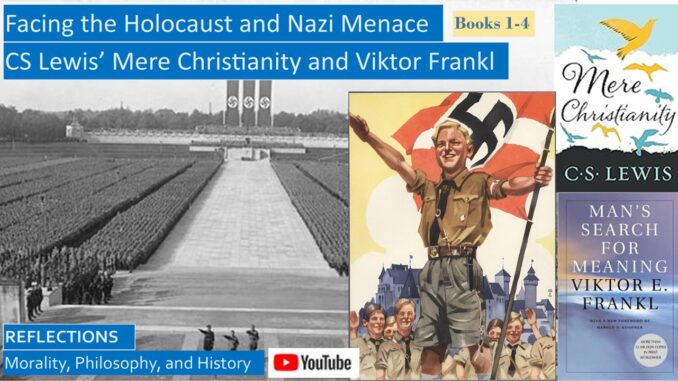
CS Lewis’ Mere Christianity was adapted from his series of World War II London radio broadcasts.
We reflect on questions like these:
How can Christians and Jews possibly forgive the evil Nazis? Viktor Frankl, a Jewish psychologist who survived Auschwitz, also ponders this question.
How can Christian soldiers kill during times of war?
How do totalitarian regimes threaten Christianity? How were German Christians deceived into supporting Hitler?
YouTube video for this reflection: https://youtu.be/x-9FeH9Gyng
COMBATTING NAZISM AND TOTALITARIANISM
Mere Christianity was compiled from a series of radio addresses by CS Lewis explaining the tenets of Christianity which were broadcast during the dark days of World War II, when Londoners fled to the safety of the underground subway tunnels while Nazi bombers destroyed their homes above. We will reflect on when he referred often to this monumental struggle, one of the rare political struggles that actually pitted the forces of good and evil against each other, in Mere Christianity.
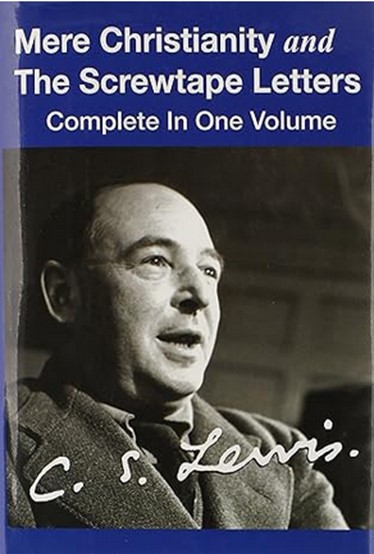


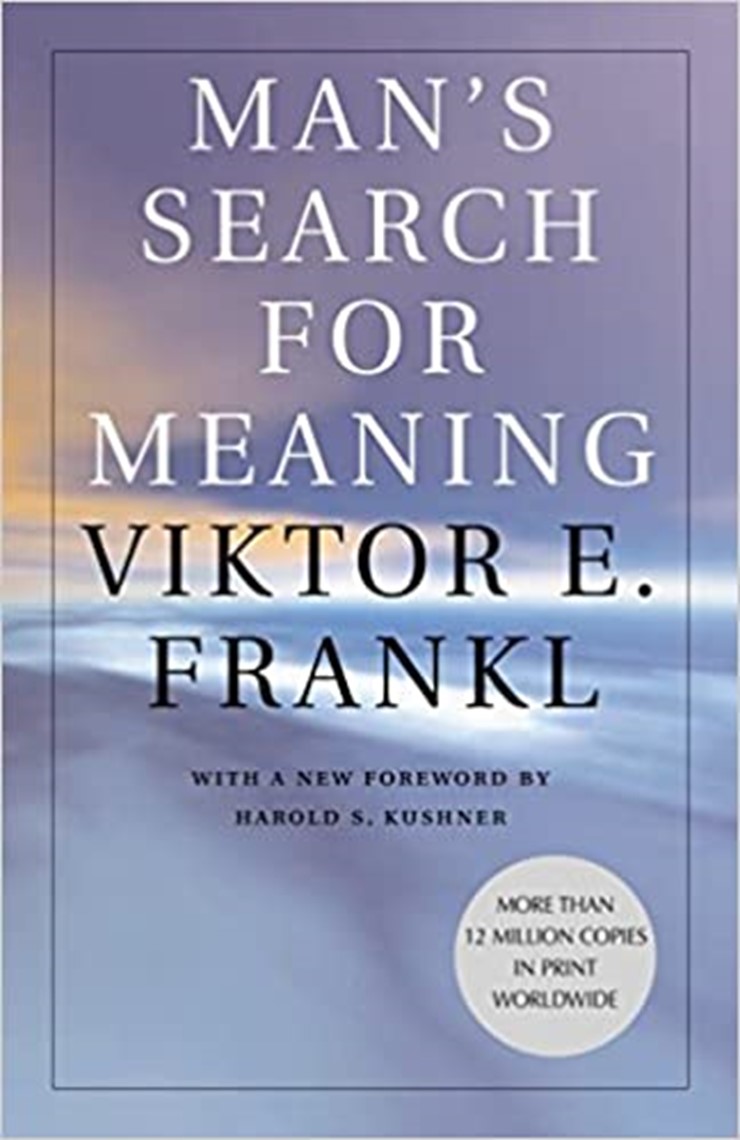
Born in Dublin in 1898 before the partition of Ireland, CS Lewis was baptized into the Anglican Church of Ireland, but became disenchanted with Christianity because of his experiences at school and serving in the trenches of World War I but regained his Christian faith in the interwar years. Mere Christianity refutes the misconceptions that kept him from the faith.
One such misconception is the modern notion that right and wrong is relative. But how can morality be relative, since Nazism is so evidently evil? CS Lewis proclaims, “We are forced to believe in a real Right and Wrong,” this is a Law of Nature shared by all cultures.[1]
CAN SOLDIERS FOLLOW THE COMMANDMENT: DO NOT KILL?
CS Lewis served in the English army in the trenches of World War I, which compelled him to confront the question: How can Christian Soldiers obey the commandment, Do not kill? CS Lewis asserts that a “Christian soldier can kill an enemy,” since the commandment, “Do not kill,” actually means “Do not murder” in the original Hebrew.
CS Lewis observes: “War is a dreadful thing, and I can respect an honest pacifist, though I think he is entirely mistaken. What I cannot understand is this sort of semi-pacifism you get nowadays which gives people the idea that though you have to fight, you ought to do it with a long face and as if you were ashamed of it.”
But CS Lewis does offer this caution: “We may kill if necessary, but we must not hate and enjoy hating. We may punish if necessary, but we must not enjoy it.”
CS Lewis continues: “Even while we kill and punish, we must try to feel about the enemy as we feel about ourselves: to wish that he were not bad, to hope that he may, in this world or another, be cured: in fact, to wish his good. This is what is meant in the Bible by loving our enemy: wishing his good, not feeling fond of him nor saying he is nice when he is not.”[2]
CS Lewis also mentions the psychological difficulty some soldiers faced when drafted to serve in the military, who found themselves psychologically incapable of defeating the fear men face when they encounter the enemy on the front lines.[3]
HOW CAN YOU FORGIVE THE NAZIS, ARCHITECTS OF THE HOLOCAUST?
CS Lewis observes: “Everyone says forgiveness is a lovely idea, until they have something to forgive, as we had during the war. And then, to mention the subject at all is to be greeted with howls of anger.” “Half of you,” his radio audience, “want to ask me, ‘I wonder how you’d feel about forgiving the Gestapo if you were a Pole or a Jew?”[4]
Surprisingly, in his chapter on Morality and Psychoanalysis, CS Lewis ponders this question: “Can we be quite certain how we should have behaved if we had been saddled with the psychological problems, and then with the bad upbringing, and then with the power, say of Himmler? That is why Christians are told not to judge. We see only the results which a man’s choices make out of his raw material. But God does not judge him on his raw material at all, but on what he has done with it.”[5]
This question of how you can forgive the Nazis is discussed in Viktor Frankl’s Man’s Search For Meaning, where Frankl shares how some Jews survived the work camps of Auschwitz during World War II. In the afterword, Dr Winslade says, “Frankl felt an intense connection to Vienna, especially to psychiatric patients who needed his help in the postwar period. He also believed strongly in reconciliation rather than revenge; he once remarked, ‘I do not forget any good deed done to me, and I do not carry a grudge for a bad one.’ Notably, Frankl renounced the idea of collective guilt. Frankl was able to accept that his Viennese colleagues and neighbors may have known about or even participated in his persecution, and he did not condemn them for failing to join the resistance or die heroic deaths.”
When Jews returned to their old homes, often they found that others had moved in, and quite often they refused to leave what they saw as their home. We do not know what the post-war Austrian policy was in these situations, this passage suggests that Frankl had moved into his old house, or at least found another in his old neighborhood.
Dr Winslade continues, “Instead, Frankl was deeply committed to the idea that even a vile Nazi criminal or a seemingly hopeless madman has the potential to transcend evil or insanity by making responsible choices.”[6]
Viktor Frankl’s Logo-therapy, Man’s Search For Meaning in Life, Love, and Suffering
https://seekingvirtueandwisdom.com/viktor-frankls-logo-therapy-mans-search-for-meaning/
https://youtu.be/1nTYlhDUJh8
But Frankl notes that many who were released from the concentration camps were unable to forgive their tormentors. “People with natures of a more primitive kind could not escape the brutality that had surrounded them in camp life. Now, being free, they thought they could use their freedom licentiously and ruthlessly. The only thing that changed was that they were now the oppressors instead of the oppressed. They became instigators, not objects, of willful force and injustice. They justified their behavior by their own terrible experiences.”[7]
Viktor Frankl, Man’s Search For Meaning, His Life in a Nazi Concentration Camp in WWII
http://www.seekingvirtueandwisdom.com/viktor-frankl-mans-search-for-meaning-his-life-in-a-nazi-concentration-camp-in-wwii/
https://youtu.be/O-YtC9qGWPI
HOW TOTALITARIAN REGIMES ENDANGER CHRISTIANITY
Nazism is a totalitarian regime that seeks to have all human institutions serve the needs of the state. But CS Lewis teaches us: “The State exists simply to promote and to protect the ordinary happiness of human beings in this life,” to permit them the personal liberty to enjoy time with their families and friends, to live a normal life. “Unless the State is helping to increase and prolong and protect such moments, all the laws, parliaments, armies, courts, police, economics, etc., are simply a waste of time. In the same way, the Church exists for nothing else but to draw men into Christ, to make them little Christs. If they are not doing that, all the cathedrals, clergy, missions, sermons, even the Bible itself, are simply a waste of time.”[8]
Many of CS Lewis’ thoughts are confirmed in Vatican II’s decree on Freedom of Religion, and many of his arguments echo those made by Karol Wojtyla, the future Pope John Paul II, in his book, Sources of Renewal, The Implementation of Vatican II.
What distinguishes the authoritarian fascist state from a democracy? Authoritarians deny liberty and due process to the individual to serve the state, while democracy protects the rights of the individual. CS Lewis teaches us that the Christian teaching of the immorality of the soul means we should cherish the dignity and freedom of the individual.
Vatican II Decree on Freedom of Religion, Embracing Democracy, Rejecting Fascism
http://www.seekingvirtueandwisdom.com/vatican-ii-decree-on-freedom-of-religion-embracing-democracy-rejecting-fascism/
https://youtu.be/i_zGeTW9QMI
CS Lewis reasons, “If individuals live only seventy years, then a state, or a nation, or a civilization, which may last for a thousand years,” and here he is referring to Hitler’s Thousand Year Reich, “is more important than an individual. But if Christianity is true, then the individual is not only more important but incomparably more important, for he has everlasting life, and the life of a state or a civilization, compared with his, is only a moment.”[9]
One of the primary dangers that Christians faced when confronting totalitarian regimes in the past century is that they seek to corrupt Christianity itself. This happened under Stalin and his successors, where the communists insisted on appointing compromised church leaders to lead the Orthodox Church. This is happening today in Communist China, where the current dictator seeks to undermine both the Buddhist and Catholic faith traditions in China. And it happened in Hitler’s Germany, where the Nazis attempted to found a state church that believed that Jesus was not a Jew! Both the Protestant Confessing Churches and the Catholic Church resisted this encroachment of the Nazi state, although some were compromised. Pope Pius XI famously smuggled in the Easter message that was read in pulpits across Germany in the midst of World War II, when most of the world could not imagine how the Nazis could be driven from the European Continent.
How the Catholic Church and the Confessing Church Survived Under Hitler’s Pagan Nazi Regime
http://www.seekingvirtueandwisdom.com/christians-under-hitlers-german-nazi-regime/
https://youtu.be/QP9UR8fqfvs
CONCLUSION
Viktor Frankl tells us, “The experiences of camp life show that man does have a choice of action. Apathy can be overcome; irritability can be suppressed. Man can preserve a vestige of spiritual freedom, of independence of mind, even in terrible conditions of psychic and physical stress.”[10] No matter how dire your circumstances, you can hope, you can always be kind to those around you.
How can we discover the meaning of life? “According to Viktor Frankl’s logotherapy, we can discover this meaning in many different ways:
- By creating a work or doing a deed.
- By experiencing something, such as goodness, truth and beauty, in nature or culture,
- Or encountering someone, by experiencing another person in his very uniqueness, by loving him.
- By the attitude we take toward unavoidable suffering.”[11]
We will conclude with CS Lewis’ observation: “Progress means not just changing, but changing for the better. If no set of moral ideas were truer or better than any other, there would be no sense in preferring civilized morality to savage morality, or Christian morality to Nazi morality.”[12]
Next, we will reflect on how CS Lewis’ Mere Christianity foreshadowed the main decrees of Vatican II, which was convened two decades after World War II, and was a reaction to the experiences of the Catholic Church under the various fascist regimes, and which furthered the ecumenical movement.
Facing the Nazi Menace: CS Lewis’ Mere Christianity and Viktor Frankl’s Memoirs on Auschwitz, Books 1-4
https://youtu.be/x-9FeH9Gyng
Preparing the Way for Vatican II: CS Lewis’ Mere Christianity, Books 1-4
https://seekingvirtueandwisdom.com/preparing-the-way-for-vatican-ii-cs-lewis-mere-christianity/
https://youtu.be/udJQzmqst34
Was CS Lewis a Closet Catholic? Reflections on Mere Christianity, Books 2-4
https://seekingvirtueandwisdom.com/was-cs-lewis-a-closet-catholic-reflections-on-his-mere-christianity/
https://youtu.be/ksWomcEg8C0
Good Friday, Easter, and Trinity: CS Lewis’ Mere Christianity, Narnia, & St Augustine’s Confessions, Books 1-4
https://seekingvirtueandwisdom.com/good-friday-easter-and-trinity-cs-lewis-mere-christianity-narnia-st-augustines-confessions/
https://youtu.be/c71ygBqvPoY
CS Lewis ponders both the Cardinal Virtues, and the Theological Virtues of Faith, Hope, and Charity, or Love, and other moral issues, including Christian romance and marriage.
Morality and the Cardinal Virtues in CS Lewis’ Mere Christianity: Prudence, Temperance, and Justice, Books 1-3
https://seekingvirtueandwisdom.com/mere-morality-and-the-cardinal-virtues-in-cs-lewis-mere-christianity-prudence-temperance-and-justice/
https://youtu.be/Djbzmeb2nc0
CS Lewis’ Mere Christianity: Forgiveness, Pride, and Envy. Can Pride Ever Be Good?, Book 3
https://seekingvirtueandwisdom.com/cs-lewis-mere-christianity-forgiveness-pride-and-envy-can-pride-ever-be-good/
https://youtu.be/Pmu6hzU5RaQ
Faith, Hope, Charity, and Love in CS Lewis’ Mere Christianity: The Theological Virtues, Book 3
https://seekingvirtueandwisdom.com/faith-hope-charity-and-love-in-cs-lewis-mere-christianity-the-theological-virtues/
https://youtu.be/avesW8whRSQ
CS Lewis’ Mere Christianity: Intimacy, Romance, Marriage, and Divorce, Books 2-3
https://seekingvirtueandwisdom.com/cs-lewis-mere-christianity-reflections-on-intimacy-romance-marriage-and-divorce/
https://youtu.be/fZcOip3WGe8
CS Lewis ponders whether Christianity is Hard, or Easy. Previously, we reflected on CS Lewis’ Great Divorce, on Hell and Heaven, and Viktor Frankl’s Man’s Search for Meaning, written after he survived his time in the Auschwitz work camps of World War II.
CS Lewis’ Mere Christianity: Is Living the Christian Life Hard or Easy?, Book 4
https://seekingvirtueandwisdom.com/cs-lewis-mere-christianity-is-christianity-easy-or-hard/
https://youtu.be/jZuWmInLh7s
CS Lewis’ Great Divorce, An Allegory of Hell and Plato’s Cave
http://www.seekingvirtueandwisdom.com/cs-lewis-great-divorce-an-allegory-of-hell-and-platos-cave/
St Gregory Of Nyssa on Beatitudes, Plato’s Allegory of the Cave, and CS Lewis and the Great Divorce
https://youtu.be/wuqwy3GyO_4
Viktor Frankl, Man’s Search For Meaning, His Life in a Nazi Concentration Camp in WWII
http://www.seekingvirtueandwisdom.com/viktor-frankl-mans-search-for-meaning-his-life-in-a-nazi-concentration-camp-in-wwii/
https://youtu.be/O-YtC9qGWPI
DISCUSSING THE SOURCES
CS Lewis’ Mere Christianity, printed in 1952, was derived from three volumes printed from 1942 to 1944, which were in turn adapted from a series of BBC Broadcasts during the Nazi London Bombing Blitz. The book has always appealed more to evangelists than to theologians, since it seeks to simplify theology so ordinary Christians can understand it. Our reflections will establish that he was inspired by writings of St Augustine and the early Church Fathers, which makes sense since he was professor of medieval studies, but since most of his listeners and readers were Protestants, he rarely credited his sources, and sought to rephrase them so they did not sound Catholic, and sounded more modern than classical. IMHO, he oversimplifies sometimes, sometimes it is difficult to discern what he is actually teaching.[13]
Many of the topics covered in Mere Christianity are covered in his Chronicles of Narnia allegorically. Narnia is an alternate children’s world where the Lion Aslan plays a Christ-like character, and where many of the animals walk and talk like their fellow humans.
In my printed version, Mere Christianity is paired with Screwtape Letters, which is another classic appreciated by many modern Christians. In discussions between demons, he imagines how they tempt Christians to be hypocrites if they cannot succeed in having them reject Christianity outright.
Like ancient works, CS Lewis subdivides Mere Christianity into four separate books:
- Book 1: Right and Wrong as a Clue to the Meaning of the Universe
- Book 2: What Christians Believe
- Book 3: Christian Behavior (includes Cardinal Virtues and Theological Virtues)
- Book 4: Beyond Personality: Or First Steps in the Doctrine of the Trinity
We also reflect on another classic written during the World War II era: Viktor Frankl’s Man’s Search for Meaning, which is a favorite life-changing books of mine. He describes how he survived the horrors of the Auschwitz work camps during the war.
[1] CS Lewis, Mere Christianity, included in volume containing Mere Christianity and the Screwtape Letters (HarperSanFrancisco, 2003, 1944), Book 1, Chapter 1, The Law of Human Nature, pp. 3-7.
[2] CS Lewis, Mere Christianity, Book 3, Chapter 7, Forgiveness, pp. 118-120.
[3] CS Lewis, Mere Christianity, Book 3, Chapter 4, Morality and Psychoanalysis, p. 90.
[4] CS Lewis, Mere Christianity, Book 3, Chapter 7, Forgiveness, p. 115.
[5] CS Lewis, Mere Christianity, Book 3, Chapter 4, Morality and Psychoanalysis, p. 91.
[6] Viktor Frankl, Man’s Search for Meaning (Boston: Beacon Press, 2006, 1959), p. 163 and https://en.wikipedia.org/wiki/Viktor_Frankl
[7] Viktor Frankl, Man’s Search for Meaning, p. 90.
[8] CS Lewis, Mere Christianity, Book 4, Chapter 8, Is Christianity Hard or Easy?, p. 199.
[9] CS Lewis, Mere Christianity, Book 3, Chapter 1, The Three Parts of Morality, p. 69.
[10] Viktor Frankl, Man’s Search for Meaning, p. 65.
[11] Viktor Frankl, Man’s Search for Meaning, p. 111.
[12] CS Lewis, Mere Christianity, Book 1, Chapter 2, Some Objections, p. 13.

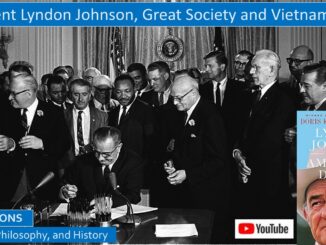
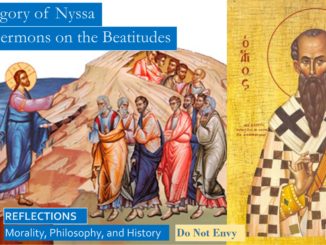
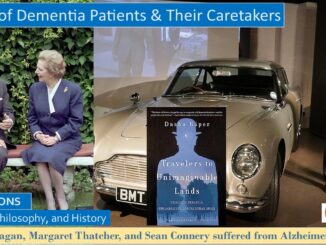
9 Trackbacks / Pingbacks